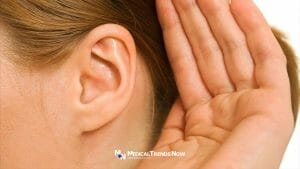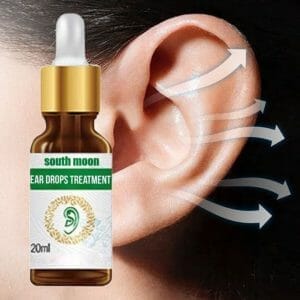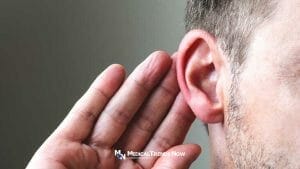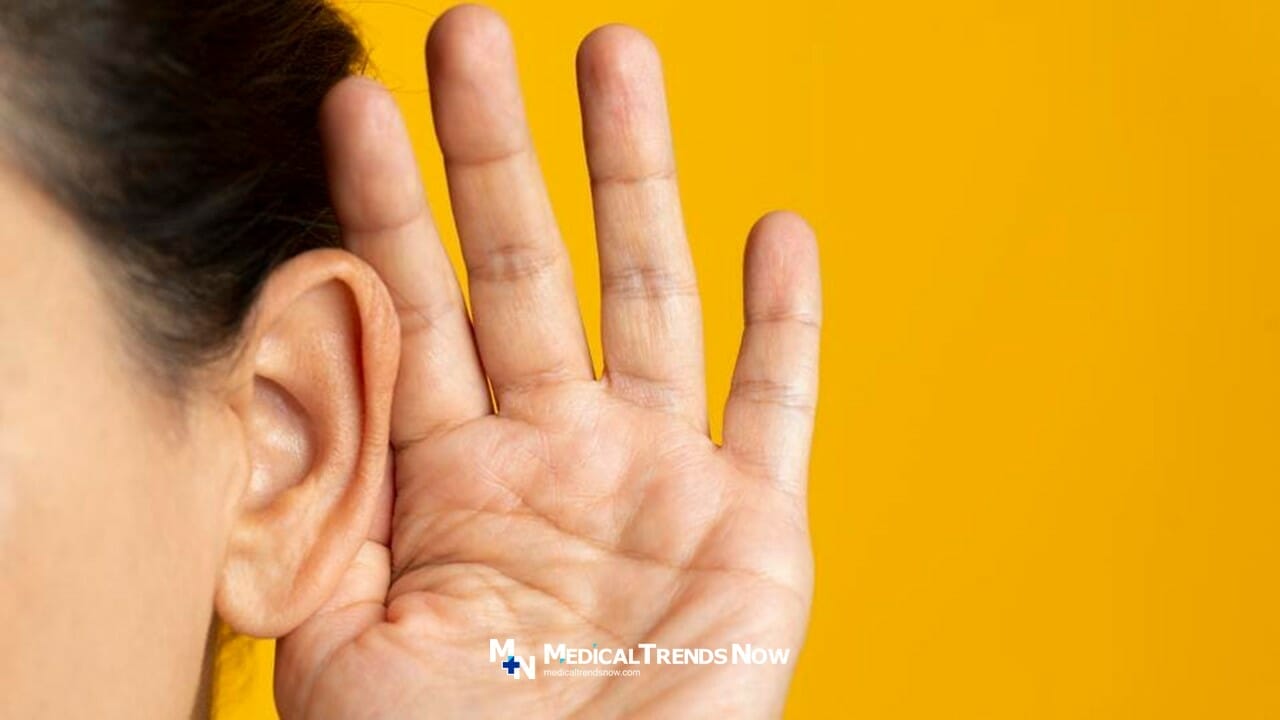Table of Contents
Hearing loss is a common condition that affects millions of people around the world. It can be caused by many factors, including age, genetics, lifestyle, and health conditions. In this article, we will discuss some of the most common causes of hearing loss and what you can do to prevent them.
Why Can’t You Hear?
Hearing loss can occur for a variety of reasons, from age-related changes in the ear to exposure to loud noises. It can be caused by an inherited condition, illness, or injury and can also be caused by certain medications. In some cases, hearing loss is temporary and can be treated with medical intervention. In other cases, hearing loss is permanent and requires the use of assistive devices such as hearing aids or cochlear implants.
No matter the cause of your hearing loss, it is important to seek medical advice as soon as possible in order to learn more about your options for treatment.

1. Age-Related Hearing Loss
Age-related hearing loss, otherwise known as Presbycusis, is the most common form of hearing loss and occurs due to the natural aging process. It is often caused by a combination of factors, including cumulative exposure to noise, changes in the inner ear, and certain medical conditions.
Age-related hearing loss typically occurs gradually over time and can cause difficulty in understanding conversations, especially in noisy environments. Treatment options such as hearing aids can help people with age-related hearing loss improve their quality of life.

2. Tinnitus
Tinnitus is a condition that can cause hearing loss and is characterized by ringing, buzzing, or humming in the ears. This can be caused by exposure to loud sounds, head or neck injuries, ear infections, medications, or even a buildup of earwax. It can be intermittent or continuous and can vary in intensity. Tinnitus can affect both adults and children and is a common cause of hearing loss. It is important to seek medical attention for tinnitus because it can have a serious impact on quality of life.
3. Meniere’s Disease
Meniere’s Disease is a disorder of the inner ear that can contribute to hearing loss. It is caused by an excess of endolymphatic fluid in the inner ear, resulting in vertigo, tinnitus, and hearing loss. Hearing loss associated with Meniere’s Disease is often episodic but can become permanent if left untreated. Treatment measures can include lifestyle changes, medications, and surgical interventions.
If you are experiencing any of the symptoms associated with Meniere’s Disease, it is important to seek medical attention as soon as possible in order to reduce the risk of permanent hearing loss.

4. Hyperacusis
Hyperacusis is a form of hearing loss, usually caused by overexposure to loud noises, which often results in an aversion to all sounds. This type of hearing loss is characterized by a heightened sensitivity to certain frequencies or volumes of sound. It can be caused by a one-time exposure to a loud sound or the cumulative effects of long-term exposure to moderately loud sounds, such as from listening to music at a high volume.
Other causes of hyperacusis can include head trauma, ear infections, disorders affecting the inner ear, and some medications. Treatment for hyperacusis may involve reducing sound sensitivity through sound therapy or desensitization, and in some cases, medical devices may be used to help reduce sound sensitivity.
5. Otitis Media (Swimmer’s Ear)
Otitis media, commonly known as swimmer’s ear, is a type of hearing loss caused by inflammation in the ear canal. It is most often caused by water entering the ear canal and trapping bacteria or other irritants. Swimmer’s ear can also be caused by scratching the inside of the ear canal with a foreign object or from an infection in the ear.
Symptoms of this condition include itching, pain, tenderness, and drainage from the ear. Treatment for swimmer’s ear includes antibiotics, anti-inflammatory medications, and eardrops. In severe cases, surgery may be necessary to remove any fluid buildup in the ear canal.
6. Head Injury Or Trauma
Head injury or trauma is one of the leading causes of hearing loss. Damage to the inner ear and its auditory nerve can be caused by a head injury, resulting in hearing loss that may be temporary or permanent. Hearing loss caused by head injury or trauma can range from mild to profound, depending on the severity of the injury.
In some cases, a person may experience only a slight decrease in hearing ability, while in other cases, a person may experience total deafness. It is important to seek medical attention immediately following any type of head injury or trauma in order to prevent further damage and determine the best course of action for treating any hearing loss that has occurred.
7. Otosclerosis
Otosclerosis is a condition that affects the bones of the middle ear and is one of the leading causes of hearing loss. It occurs when a hard, bony growth develops around the small bones in the middle ear, which can prevent them from functioning properly. This can cause conductive hearing loss due to disruption in sound transmission.
The exact cause of this condition is unknown, but it is believed to be associated with abnormal calcium deposits in the middle ear bones or stapes. It is more likely to affect women, smokers, and those with a family history of otosclerosis. Treatment options include hearing aids and surgery, depending on the severity of the condition.

Preventing Hearing Loss
Preventing hearing loss is possible with some lifestyle modifications. Avoiding loud noises, like those from music and power tools, is essential for maintaining healthy hearing. Wearing protective earplugs or earmuffs can help reduce exposure to loud noises. Regularly monitoring hearing health with a medical professional can also help identify any changes in hearing sensitivity early on.
Additionally, avoiding certain medications that may be ototoxic or damaging to the ear is key in preventing hearing loss. Taking these simple precautions can go a long way in protecting hearing health.
1. Protect Your Ears
Hearing loss is a condition that affects millions of people around the world and can be caused by a variety of factors. Excessive noise exposure, aging, heredity, and certain illnesses or medications can all contribute to hearing loss. Protecting your ears is essential to maintaining your hearing and preventing hearing loss. Wearing protective gear in noisy environments, avoiding activities that could cause hearing damage, and having regular hearing exams are all good ways to safeguard your ears and preserve your hearing.

2. Get Regular Hearing Tests
Regular hearing tests are an important part of maintaining and preserving healthy hearing. Hearing loss can be caused by a variety of factors, from age-related hearing loss to excessive noise exposure, to certain medications. It is important to monitor your hearing by getting regular hearing tests in order to identify any issues early on and take proper steps to address them. Regular testing can also help determine any lifestyle changes that may need to be made in order to reduce the risk of developing hearing loss.
3. Avoid Exposure to Loud Noises
Exposure to loud noises can cause permanent hearing loss, so it is important to protect your ears if you are in a noisy environment. Wearing ear protection or limiting time spent in loud places can help reduce the risk of hearing loss.
Additionally, be mindful of the volume of music or television that you listen to, as prolonged exposure to high volumes could cause damage to your hearing. Taking these steps can help ensure that you protect your hearing now and in the future.
4. Follow Medication Instructions
Hearing loss can be caused by a variety of factors, including age, genetics, and noise exposure. However, one of the most common causes is a side effect of certain medications. To help protect your hearing, it is important always to follow your doctor’s instructions when taking medication and to be aware of the potential risks associated with any prescriptions or over-the-counter drugs.
Additionally, if you experience any symptoms, such as ringing in the ears or muffled sounds that could indicate hearing loss, be sure to speak with your doctor immediately so that you can get the help you need.
5. Maintain A Healthy Diet
Maintaining a healthy diet is an important factor when it comes to preventing hearing loss. Studies suggest that certain nutrients like vitamin B12 and vitamin D are associated with better hearing health, as well as a decreased risk of hearing loss. Eating a variety of fruits, vegetables, and proteins can help to ensure that your body has the essential vitamins and minerals it needs for a healthy hearing system.
Additionally, limiting alcohol intake and avoiding smoking can help reduce your risk of hearing loss. Taking steps to maintain a healthy diet can be an important part of preventing and managing hearing loss.
6. Stay Hydrated
Staying hydrated is an important factor in maintaining healthy hearing. Research has shown that dehydration can increase the risk of hearing loss due to its effect on the auditory nerve. The auditory nerve is responsible for carrying sound signals from the ear to the brain and becomes damaged when deprived of hydration. By staying properly hydrated, individuals can reduce their risk of hearing loss and ensure the optimal functioning of their auditory system.

7. Quit Smoking
Smoking has been linked to hearing loss for many years and is one of the leading causes of this condition. The toxic chemicals in cigarettes can damage the hair cells in the inner ear that are responsible for sound processing and can lead to long-term hearing impairment. Smoking also leads to reduced blood flow to the ears, which can reduce their ability to function properly. Therefore, quitting smoking is one of the best ways to reduce the risk of hearing loss.
Takeaway
These are just a few of the most common causes of hearing loss. If you think you may have any of these conditions, it is important to see your doctor for a diagnosis and treatment recommendations.
In conclusion, hearing loss can be caused by various factors, some of which are preventable. It is important to take care of your hearing health by avoiding exposure to loud noises, protecting your ears during activities that involve loud sounds, and seeking medical attention when necessary. Maintaining a healthy lifestyle can also contribute to preventing hearing loss. By being proactive about your hearing health, you can enjoy a better quality of life with improved communication and social connections. Don’t wait until it’s too late; take action today to protect your ears and preserve your ability to hear for years to come.
Hearing loss can affect anyone, regardless of age or gender. The causes range from exposure to loud noises, aging, and genetics. However, taking preventative measures such as wearing ear protection in noisy environments or avoiding activities that may cause damage to the ears can greatly reduce the risk of hearing loss. Regular check-ups with a healthcare professional can also help detect any hearing problems early on. By educating ourselves on the causes and taking proactive steps to prevent them, we can protect our hearing and enjoy all the sounds life has to offer. Don’t wait until it’s too late; start protecting your hearing today!









